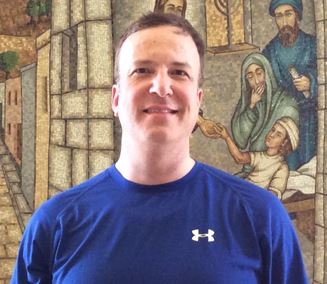 On this 27th Sunday in ordinary time, the Gospel of Mark calls us to reflect on the power of Love in action. All of us have a natural desire to be loved and nurtured. Therefore, love is essential and critically important to our growth and development as human beings. It is a key component to being mentally healthy and having a positive sense of well-being. Though there is no one definition to describe love, it is characterized by a sense of attachment and affection towards somebody or something. So strong is the feeling of love that it is said to “make the world go around.”
On this 27th Sunday in ordinary time, the Gospel of Mark calls us to reflect on the power of Love in action. All of us have a natural desire to be loved and nurtured. Therefore, love is essential and critically important to our growth and development as human beings. It is a key component to being mentally healthy and having a positive sense of well-being. Though there is no one definition to describe love, it is characterized by a sense of attachment and affection towards somebody or something. So strong is the feeling of love that it is said to “make the world go around.”
One form that the need for love takes is through physical contact, the healthy desire for appropriate touch. Psychological studies have found that babies who are deprived of contact comfort, particularly during the first six months after they are born, grow up to have psychological impairments. Given the importance of the need to be loved, a significant determinant of our happiness is whether we feel loved and cared for by others. In our pursuit of the need to be loved, we also have a parallel need, to love and care for others. This desire, it turns out, is just as strong as the need to be loved and nurtured. It is the desire to love and take care of others. We know that the desire to love and care for others is hard-wired and deep-seated because fulfillment of this desire enhances our happiness levels. Expressing love or compassion for others benefits not just the recipient of affection, but also its initiator. Small acts of kindness are proven to generate as much happiness as greater acts.
In an interesting set of psychological studies, participants were either given $5 or $20 as part of an experiment. Participants in both groups were then asked to either spend the money on themselves or on others. Those who spent the money on others, it turned out, grew happier than those who spent it on themselves. More interestingly, the amount of money spent on others didn’t make a difference to happiness levels: those who spent $5 derived just as much happiness as those who spent $20. Human beings have an innate quality of giving and feeling love.
As members of Holy Family Community, we seek wholeness through our love and service to God and one another. We do this through the selfless love of our spouses, children, family, community, and the higher calling to love our enemies as ourselves. Love is the action we are called to partake in daily. We have an unremitting hunger for something that lasts and is reliable. But as many people have come to know, when we love, there is no guarantee that we will be shielded from the harsh realities of separation, heartache, and loss.
Jesus in today’s gospel specifically addresses the heartfelt and difficult place of divorce in the lives of individuals, families and communities at large. Divorce in the first century was a generally accepted part of life among Jews and within the wider Greco-Roman culture. Some writers and public leaders of Jesus’ time spoke out against divorce as being bad for society but, for the most part, people debated only details of its legal basis. In today’s gospel, Jesus turns the conversation with the Pharisees away from a legal foundation for divorce to God’s positive design for marriage. Jesus describes marriage as a strong and unifying bond between two people. It transcends contractual obligations, economic utility, and is something deeply rooted in human identity.
Jesus’ teaching thus impels us to promote and foster healthy marriages within our communities, and in the cases of divorce and remarriage, to extend compassion and facilitate healing. Jesus explains that God’s main objective is to provide wholeness and protection for all those who are most vulnerable. It is no coincidence that the Gospel of Mark tells us another story about Jesus blessing children. Children in the ancient world had few rights and essentially no social status. The disciples themselves were even obstructing people from bringing their children to Jesus. But Jesus reprimands them to not hinder the children from coming to him, and blesses out of his deep concern and love for the vulnerable and all who are at risk for exploitation. The persons on the edge of humanity (women and children), and for the Gospel of Mark (any outsider marginalized by ritual, tradition, ethnicity, race, religion, gender), will now find a place in the Kingdom of God.
One of the primary theological challenges from reading this week’s gospel is the appeal Jesus makes to God’s will, not God’s law. How we determine the distinction between these two is at the heart of the debate when it comes to thinking about marriage in our current context. The reality of separation and divorce can make someone feel like an outsider. The theological point in the Gospel of Mark is not God stipulating idyllic models of relationships, but God saying to you and me, “I am here, in my Son, to be in relationship with you. Nothing can separate us any longer.”
If you are separated or divorced, or know of someone in need of support, please consider attending the RISING FROM DIVORCE MINISTRY workshops. For more information contact Kathy Kvitek at kathykv2@gmail.com.
Fr. Rich Jakubik